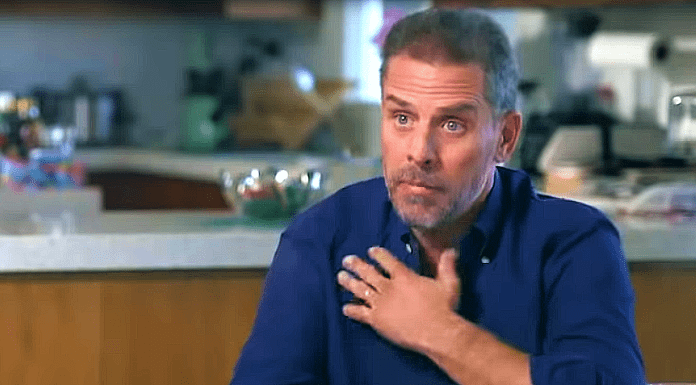Hunter Biden faced yet another scandal on Tuesday after investigative reporter John Solomon revealed he and a longtime business partner actively advocated on behalf of a Ukrainian fugitive indicted by the Obama administration.
Like many other Biden family business dealings, it raised the concerns that the conflict of interests involving then-Vice President Joe Biden may have undermined US foreign policy.
Next week, Hunter, the Biden family’s leading black sheep, is set to release a memoir that Democrats hope will rehab his public image after actual rehab failed to address the problems.
Already, Hunter is believed to be under FBI investigation linked to money laundering and tax fraud over his foreign business dealings in Ukraine, China and other countries.
But in the lead-up to the book, the president’s son already is drawing more unwanted attention like that which mainstream media rushed to conceal during the campaign.
Last week, amid a Biden administration push for stricter background checks of firearms, Politico revealed that the Secret Service had stepped into a cover-up scheme when police began investigating an illegal firearm in Hunter’s possession.
The scandal this week, based off an e-mail threat recovered from Hunter’s abandoned laptop, suggests that he and business partner Devon Archer (himself a close adviser of then-Secretary of State John Kerry) consulted with Adam Waldman, a US-based attorney for Ukrainian oligarch Dmitri Firtash.
A year before the 2015 intervention push, Firtash had been indicted for corruption in a Chicago court, on charges relating to bribery at at titanium mine in India.
But he was challenging extradition from Austria, where he remained at large, while attempting to return home to Ukraine after as tensions over Russian occupation simmered in Kiev.
In April 2015, Waldman delivered Archer a list of talking-points, which he then forwarded to Biden, according to the recovered hard drive.
“The case is weak and ultimately, and perhaps as soon as next week, a loser,” Waldman wrote. “Moreover, Austria at the highest levels has zero enthusiasm for its continuation.”
He requested a meeting between the oligarch and US government officials that “could then lead to closer communication from him about his intentions and direction in his country.”
The efforts to communicate with and assist Firtash continued over the next several months, at the same time that Hunter Biden and Devon Archer were actively lobbying on behalf of the Ukrainian energy company Burisma.
In addition to Waldman, they met with Hares Youssef, a lifelong friend of Firtash, who traveled to Washington, DC, in June 2015 to discuss the case, as well as other “business opportunities,” Solomon reported.
A text message from Youssef to Waldman confirmed the June 18 meeting.
I asked both of them to help Dmitri. I was looking to find any solution to help my friend,” Youssef said in an interview with Solomon’s Just the News.
He claimed that Hunter’s response was that he could not do anything.
But with the Burisma meetings reaching the top levels of the State Department before Biden, himself intervened by threatening to withhold a billion-dollar loan if the investigating prosecutor was not fired, it is unknown whether Firtash’s name may have informally arisen.
Youssef appeared to be aware of Archer’s various contact with top officials including Kerry, and then-Assistant Secretary Victoria Nuland, who oversaw Ukraine policy.
Hunter Biden also met with then-Deputy Secretary of State Tony Blinken in July 2015 to discuss unknown topics. Blinken, now the secretary of State, claimed they discussed the death of Hunter’s brother, Beau, and its effect on the family.
With many American lawyers barraging the government on Firtash’s behalf, the concern over the appearance that impropriety was such that even Waldman appeared worried that the effort might boomerang.
He questioned whether they could claim attorney–client privilege if the communications were made public, and whether it might be necessary for US contacts to register under the Foreign Agents Registration Act.
“[T]his relationship with sons of leaders firm could become public and strongly recommend caution,” Waldman wrote in a September 2015 email to Youssef.
However, while Waldman feared that the government’s position had not changed with regard to Firtash, the oligarch has yet to be extradited, raising concerns about corruption and influence in the foreign courts.

